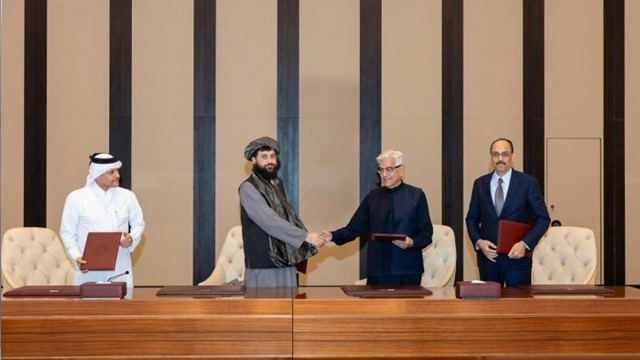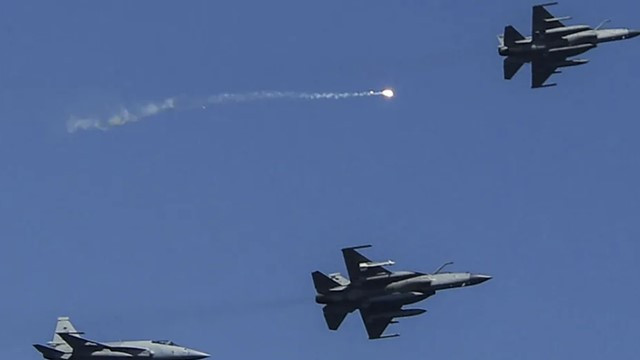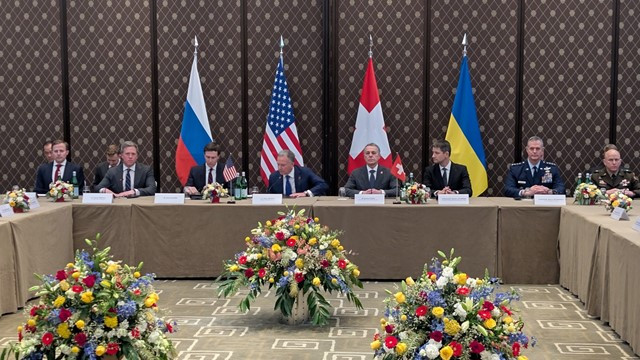১০ ফাল্গুন ১৪৩২
Pakistan-Afghanistan Hold Third Round of Ceasefire Talks
06 November 2025 20:11 PM
NEWS DESK
Afghan and Pakistani negotiators are set to resume ceasefire talks in Turkiye on Thursday, aiming to prevent a return to hostilities following their worst clashes in years.
Relations between the neighbors have soured in recent years, with Islamabad accusing Kabul of harboring militant groups that carry out attacks in Pakistan, claims that the Taliban authorities in Afghanistan deny.
The latest conflict erupted after explosions in the Afghan capital on October 9 that the Taliban government blamed on Pakistan, prompting a retaliatory border offensive.
The ensuing fighting killed more than 70 people, including civilians, and wounded hundreds more.
The two countries, former allies who share a 2,600-kilometre frontier, agreed on October 19 to a ceasefire mediated by Turkiye and Qatar, although its details have not been finalized.
A tense round of negotiations in Istanbul spanning several days ended last week with an agreement to extend the ceasefire and to meet again on Thursday.
It was not clear who would be leading the delegations.
Host Turkiye said at the conclusion of last week’s talks that the parties had agreed to establish a “monitoring and verification mechanism” to maintain peace and penalize violators.
Negotiators are now expected to hammer out the details of that mechanism and other issues concerning the implementation of the ceasefire.
But mistrust abounds. Both sides have accused the other of not acting in good faith and warned of a resumption of fighting should the truce collapse.
Pakistani officials have also described Kabul as acting like a proxy of arch-rival India, which has forged close ties with the Afghan Taliban since it returned to power in 2021.
The Kabul explosions that sparked the conflict last month coincided with India rolling out the red carpet for UN-sanctioned Afghan Foreign Minister Amir Khan Muttaqi.
On Saturday, Pakistan’s defense minister accused the Taliban government of “treacherous and barbaric patronization of Indian-sponsored terrorism.”
Before its return to power in Afghanistan, Islamabad had had historically close ties with the Taliban.
At the core of the current dispute are interlocking security grievances that have poisoned relations since 2021.
Islamabad insists that Kabul must stop providing sanctuary to the Pakistani Taliban and other militant groups that allegedly use Afghan territory to plan and launch cross-border attacks.
Afghan officials reject those accusations, and accuse Pakistan of routinely violating Afghanistan’s sovereignty with strikes.
The border between the two countries has been closed for weeks, causing significant economic losses to traders on both sides.



















Comments Here: